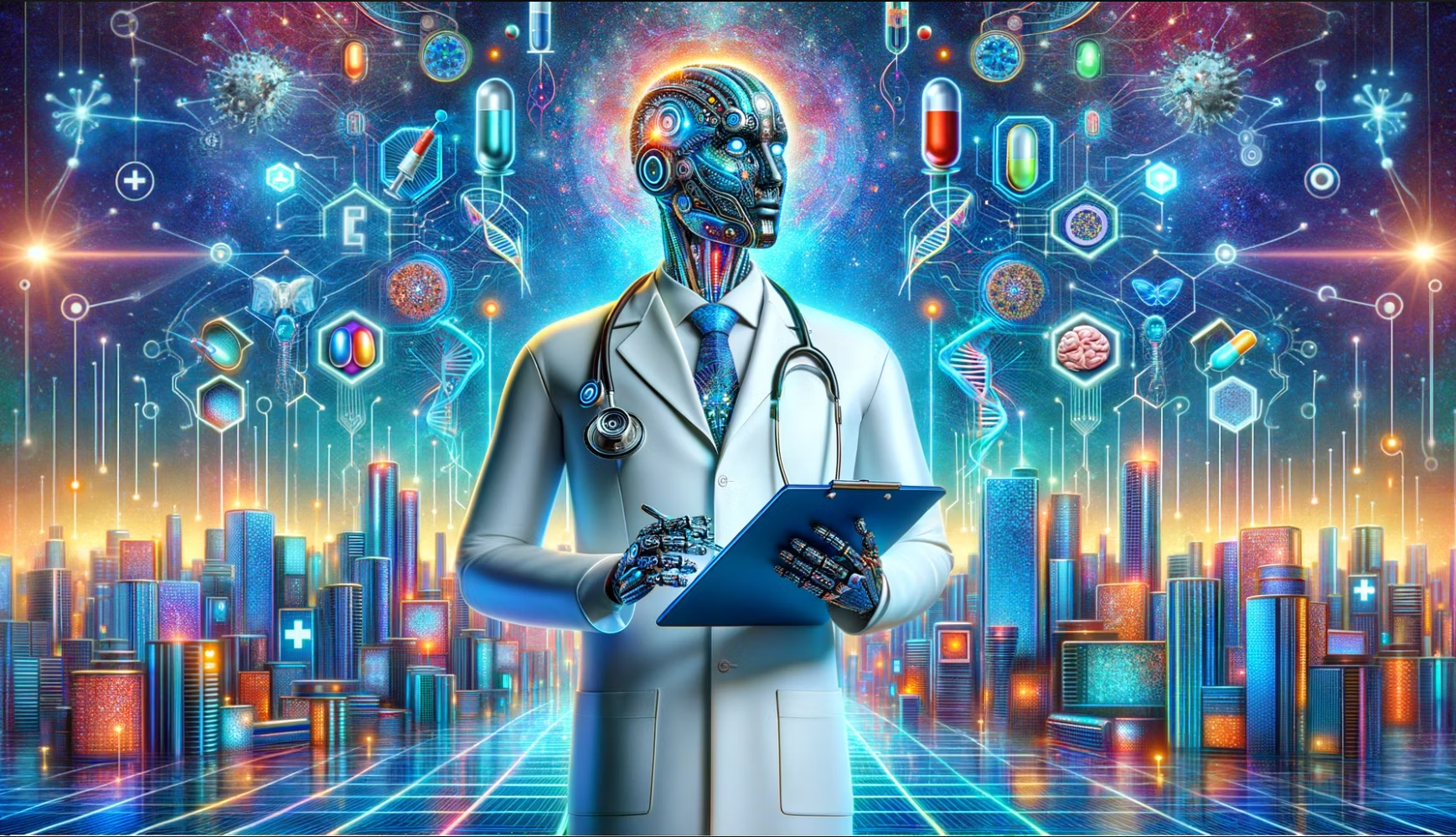Health has always been one of humanity’s greatest priorities. From ancient herbal remedies to cutting-edge biotechnology, the pursuit of longer, healthier lives has shaped civilizations and economies alike. In the 21st century, health is no longer only about treating illness—it is about preventing disease, promoting wellness, and harnessing technology to improve quality of life. As we move forward, a blend of medical innovation, lifestyle awareness, and digital transformation is redefining what health means for individuals and societies.
The Shift from Treatment to Prevention
Traditionally, healthcare systems have been reactive, focusing on treating diseases once they appear. However, modern health approaches emphasize prevention. Preventive medicine saves lives, reduces costs, and enhances overall well-being.
Routine checkups, vaccinations, and screenings are critical, but lifestyle choices play an even bigger role. Research suggests that up to 80% of chronic diseases such as diabetes, heart disease, and certain cancers can be prevented with healthy habits. A balanced diet, regular exercise, stress management, and quality sleep are now recognized as the “first line of defense” against illness.
Governments and health organizations are also investing in public health campaigns to raise awareness about smoking cessation, alcohol moderation, and mental well-being. Prevention is not just about individuals making good choices—it is about creating environments where healthy choices are the easiest choices.
The Role of Technology in Modern Healthcare
One of the most profound changes in health over the past decade has been the rise of digital health technologies. Smartphones, wearable devices, and telemedicine platforms have transformed how people manage their well-being.
Wearables such as smartwatches and fitness trackers monitor heart rate, sleep quality, oxygen levels, and even detect irregular heart rhythms. This real-time data empowers individuals to take control of their health and enables doctors to make more informed decisions.
Telehealth has also revolutionized access to care. Patients in rural or underserved areas can now consult with specialists via video calls. This not only reduces travel costs and wait times but also increases early diagnosis and treatment adherence.
Artificial intelligence (AI) is being used to analyze medical data, assist radiologists in detecting early signs of disease, and personalize treatment plans. For example, AI algorithms can analyze mammograms more quickly and accurately than human doctors, potentially catching breast cancer at earlier stages.

Mental Health: Breaking the Stigma
Physical health has long dominated the conversation, but mental health is finally receiving the attention it deserves. Depression, anxiety, and burnout are now recognized as major public health issues, especially in the wake of the COVID-19 pandemic.
The stigma around mental health is gradually fading as more people seek therapy, counseling, and digital mental health solutions. Apps that provide guided meditation, stress management exercises, and even AI-based therapy sessions are growing in popularity. Employers are also recognizing the need for workplace mental health programs, offering resources such as counseling hotlines, wellness days, and mindfulness workshops.
Holistic well-being is now understood as the balance of both physical and mental health. Ignoring mental well-being can lead to chronic conditions such as cardiovascular disease, obesity, and immune system dysfunction. Thus, addressing stress and mental resilience is just as important as exercise and diet.
Nutrition and the Science of Food
The old saying “you are what you eat” has never been more relevant. Nutrition science is advancing rapidly, revealing the impact of food on nearly every aspect of health. From gut microbiome research to personalized nutrition plans, the future of food is highly individualized.
The gut, often called the “second brain,” plays a vital role in digestion, immunity, and even mental health. A healthy gut microbiome has been linked to reduced risks of obesity, diabetes, and depression. Probiotic-rich foods such as yogurt, kefir, and fermented vegetables are becoming staples for health-conscious individuals.
Personalized nutrition is another growing trend. Genetic testing can now reveal how individuals metabolize certain nutrients, helping create tailored diets that optimize health outcomes. For instance, some people may thrive on high-protein diets, while others may benefit more from plant-based lifestyles.
At the same time, the global movement toward sustainable and plant-forward diets reflects both environmental and health concerns. Diets rich in fruits, vegetables, legumes, and whole grains have been shown to reduce risks of chronic diseases while also reducing carbon footprints.
The Role of Fitness in Lifelong Health
Exercise remains one of the most powerful tools for maintaining long-term health. Regular physical activity reduces the risk of heart disease, stroke, type 2 diabetes, and certain cancers. Beyond physical benefits, it also enhances mental health by boosting mood and reducing stress.
The modern fitness industry has expanded beyond gyms. Online fitness classes, personalized training apps, and home workout equipment have made exercise more accessible. Wearable devices provide instant feedback on activity levels, motivating people to stay consistent.
Importantly, the concept of exercise is expanding beyond intense workouts. Walking meetings, active breaks during work, and community-based fitness programs are helping integrate physical activity into daily routines. Experts emphasize that consistency—rather than intensity—is the true key to fitness.
Global Health Challenges
While innovation is advancing rapidly, challenges remain. Access to healthcare is still unequal, with millions around the world lacking basic services. Developing countries struggle with infectious diseases, malnutrition, and inadequate medical infrastructure, while developed nations battle rising rates of chronic illnesses linked to lifestyle.
Another challenge is the rising cost of healthcare. Medical innovation often comes with high price tags, making treatments inaccessible for many. Balancing innovation with affordability will be crucial in ensuring equitable health outcomes.
Climate change also poses a growing threat to global health. Rising temperatures, air pollution, and changing ecosystems contribute to respiratory diseases, malnutrition, and the spread of infectious diseases like malaria and dengue. Addressing climate and health together is essential for future generations.
The Future of Health: A Holistic Vision
The future of health is not about a single breakthrough or invention—it is about integration. Medical technology, nutrition science, mental health awareness, and preventive care are all converging to create a more holistic approach.
We are moving toward a world where individuals are empowered with real-time health data, doctors use AI-assisted diagnostics, and healthcare systems prioritize prevention over treatment. Personalized medicine will allow treatments tailored to genetics and lifestyle, while public health campaigns will continue promoting wellness on a large scale.
Perhaps most importantly, the definition of health itself is evolving. Health is no longer just the absence of disease—it is a state of physical vitality, mental resilience, and social well-being.

Conclusion
Health is one of humanity’s greatest treasures, and its future lies at the intersection of innovation, responsibility, and awareness. By embracing preventive care, leveraging technology, addressing mental health, and promoting balanced lifestyles, societies can build healthier populations.
The challenges are significant—ranging from accessibility to affordability and environmental threats—but the opportunities are greater. A holistic approach that prioritizes both personal responsibility and systemic improvements will ensure that future generations not only live longer but live better.
In the end, health is not just a personal matter—it is a collective responsibility. When individuals, communities, governments, and industries work together, the promise of a healthier, more resilient world becomes possible.


